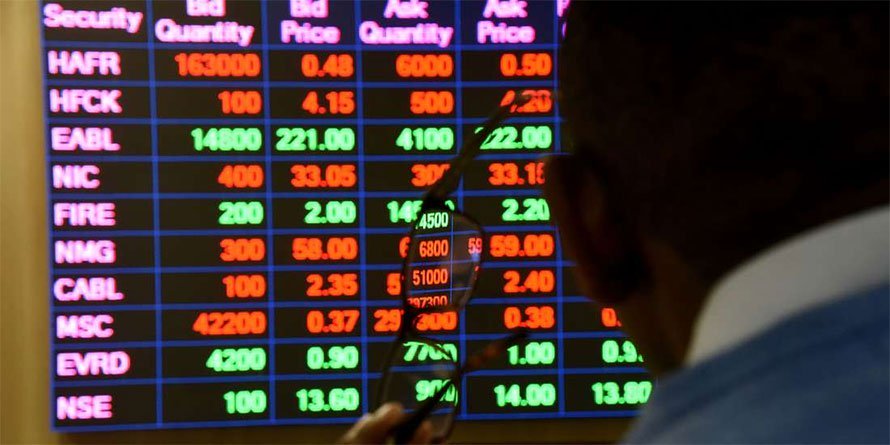Traded turnover at the Nairobi Securities Exchange (NSE) for equities and bonds rose in July, with the equities seeing heavier foreign selling activity while the bonds market benefitted from a liquid money market.
NSE data shows that equities turnover went up by 10 per cent or Sh1.2 billion to Sh13.46 billion last month.
Analysts have however pointed at heightened selling activity by foreign investors as one of the reasons for the higher traded volumes last month.
“Foreign investors remained net sellers with a net selling position of $49.8 million (Sh5.4 billion),compared to June’s net selling position of $15.9 million (Sh1.7 billion),” said analysts at Cytonn Investments.
As was the case in June, the higher traded turnover was accompanied by a fall in the other market indicators.
The NSE 20 share index ended July lower by 7.1 per cent, while the NSE All Share Index was down 3.2 per cent during the month. Market capitalisation fell by Sh61 billion to Sh2.036 trillion in July, but has since the beginning of this month fallen further to Sh1.945 trillion.
Genghis Capital analysts said however that in the past week, foreign investors have turned back to buying activity, attracted by the low share prices on offer.
“We are keen on sustained foreign flows in the coming weeks which could reverse the recent direction of the market,” said Genghis.
In the bonds market, turnover rose by 15 per cent or Sh8.4 billion in July to hit a one year high of Sh65.8 billion.
The bonds segment has in the past three months become the go-to investment option for investors looking for a return in the market, given the poor performance of equities.
It has also been helped by a very liquid money market, which has left investors competing for a position in the government securities segment.Primary auctions were heavily oversubscribed in July, with the month’s bond sale attracting bids worth Sh181.8 billion against the advertised target of Sh60 billion. With the government only taking up Sh80 billion, the unsuccessful bidders were forced to seek bonds from the secondary market. However, those already holding government paper have been reluctant to sell, given the lack of alternative investments that can match bonds for a return in the current economy.
